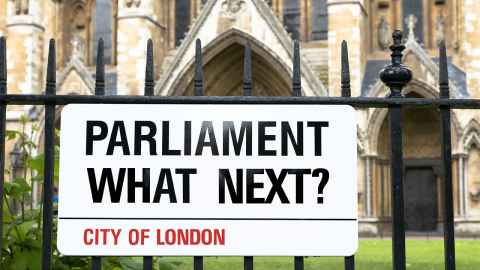What’s the meaning of the UK’s crisis?
30 August 2019
Opinion: Prime Minister Boris Johnson's decision to suspend Parliament risks serious damage to the democratic fabric of the UK. Dr Edward Willis explains why.

New Zealand shares a history and a modern style of government with the UK. While there are important differences, constitutional happenings on the other side of the world tend to be instructive for us here as well. This is one of the reasons the emerging constitutional crisis in the UK over Brexit is important.
New Prime Minister Boris Johnson has taken steps to suspend Parliament following the Queen’s Speech from the Throne. A suspension for a short period of time is not strictly unusual in itself, but it is an extraordinary step given the acute political challenges the British government currently faces as it moves towards Brexit.
The important constitutional point here is the basic principle that the Government, which is led by the Prime Minister, should be accountable to Parliament. Parliament represents the people in the business of government, and so accountability for government policy needs to be tested regularly before Members of Parliament. This is why institutions like Question Time and Parliamentary Debates are so important, even though they can look like vacuous political posturing from the outside.
Suspending Parliament leaves the Government unaccountable to Parliament for the period of time that the suspension is in effect. Parliament is not always in session, and it’s not unusual to have ‘gaps’ in time in the accountability process. But this time around there are particular constitutional concerns that are worth keeping in mind.
The first is that at four and a half weeks this is the longest period of suspension for at least 40 years in the United Kingdom. The accountability gap is therefore larger than would normally be expected to occur.
The second is that the UK is currently facing fraught political circumstances. The ticking clock of a October 31 ‘no deal’ Brexit means that highly bespoke questions of government policy are in play. The constitutional expectation is that the Government will be held to account by Parliament for its policy decision in this regard, but the opportunities for Parliament to do so are now much more limited.
The third is that as a new Prime Minister, Parliament has not had much of an opportunity to hold Boris Johnson to account for his Brexit plan. Parliament has sat for just one day since Johnson became Prime Minister. In that time he has made numerous public statements and engaged in negotiation with the EU concerning Brexit. There has not been a real opportunity for Parliament to hold the Prime Minister to account for these statements and actions, as would usually be expected.
We don’t know precisely how Brexit will play out over the next couple of months. What we do know is that the Prime Minister of the United Kingdom has taken steps – possibly cynically – that reduce his political accountability to Parliament as representatives of the people of the United Kingdom before the ‘no-deal’ deadline strikes.
However successful this tactic may be as a political strategy, it risks serious damage to the democratic fabric of the UK.
Dr Edward Willis is from the Faculty of Law.
This article reflects the opinion of the author and not necessarily the views of the University of Auckland.
Used with permission from Newsroom What’s the meaning of the UK’s crisis? on 30 August 2019.
Media queries
Alison Sims | Research Communications Editor
DDI 09 923 4953
Mob 021 249 0089
Email alison.sims@auckland.ac.nz